AITA for telling my wife I would open a separate account if she didn't get our money back?
For twelve years, a devoted husband and wife have built a life together, sharing love not through children but through their cherished pets. Their partnership is grounded in trust, fairness, and mutual respect, with carefully balanced finances that reflect their commitment to each other and their shared future.
Yet, lurking in the shadows of this harmony is the wife’s sister, trapped in a cycle of poor choices and financial desperation. Her refusal to face reality and reliance on deceitful schemes threatens to unravel the stability the couple has worked so hard to maintain, casting a painful dilemma into the heart of their quiet life.

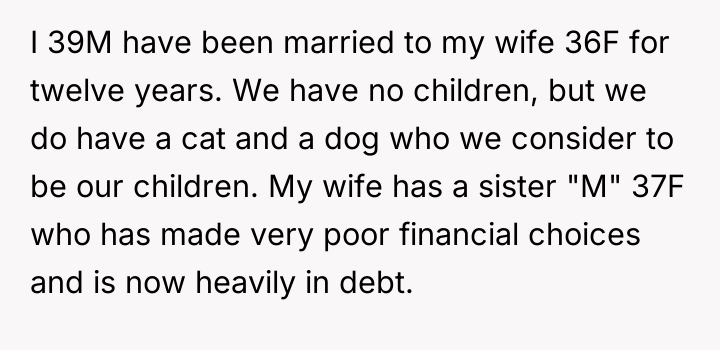



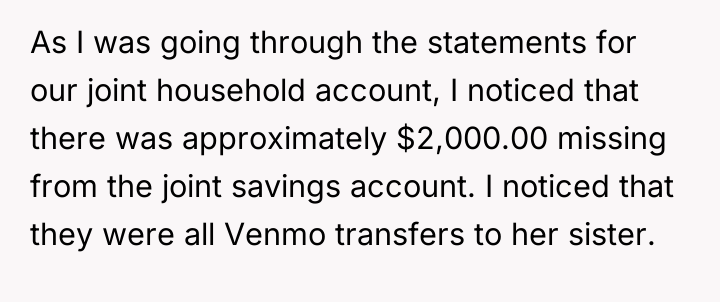


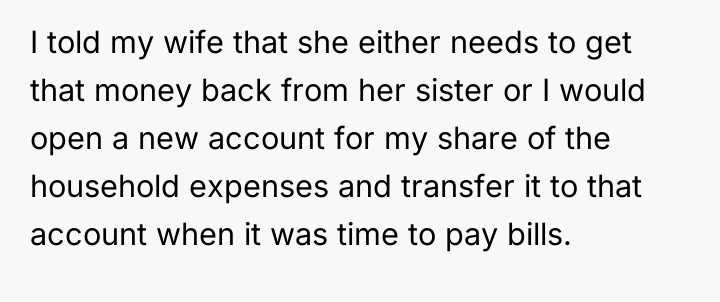
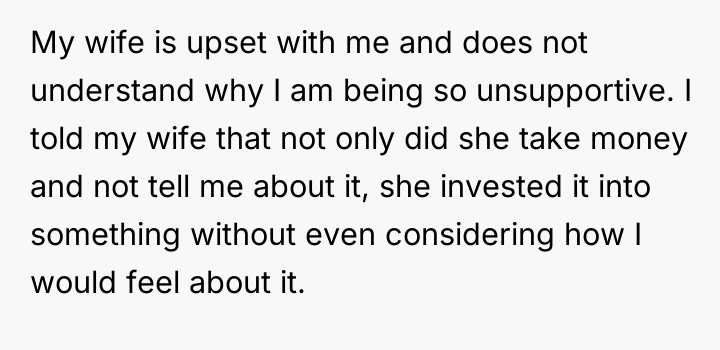


Subscribe to Our Newsletter
As renowned researcher Dr. Brené Brown explains, “Boundaries are the distance at which I can love you and me simultaneously.” This situation perfectly illustrates a breakdown in relational boundaries concerning shared resources. The OP and his wife established a clear financial structure involving separate fun money and joint accounts for shared necessities and emergencies. The wife's unilateral withdrawal of $2,000 from the joint savings, designated for emergencies, and investment in a high-risk venture (an MLM/pyramid scheme) violates the established agreement and compromises the agreed-upon safety net. The wife’s motivation appears rooted in a combination of familial obligation and the excitement surrounding a potential financial windfall, which is often amplified within MLM structures. Her subsequent defense—labeling her husband unsupportive—is a common deflection tactic that shifts focus from the breach of trust (taking money without discussion) to his reaction to her plan. The sister-in-law’s attack on the OP as a "control freak" further demonstrates an external influence attempting to destabilize the marital unit's financial caution. The OP's initial action—demanding the money be returned—was an immediate, albeit reactive, attempt to reassert the violated boundary and protect the family's financial health. While his reaction was understandable given the breach, a more constructive approach moving forward would involve setting firmer joint protocols for large withdrawals from shared savings, rather than issuing ultimatums based on the specific investment target. The recommendation is for the couple to immediately halt all new shared fund contributions until they formally agree on a shared investment/gifting threshold and a formalized process for accessing emergency savings.
THE COMMENTS SECTION WENT WILD – REDDIT HAD *A LOT* TO SAY ABOUT THIS ONE.:
When users weighed in, they held nothing back. It’s a raw, honest look at what people really think.




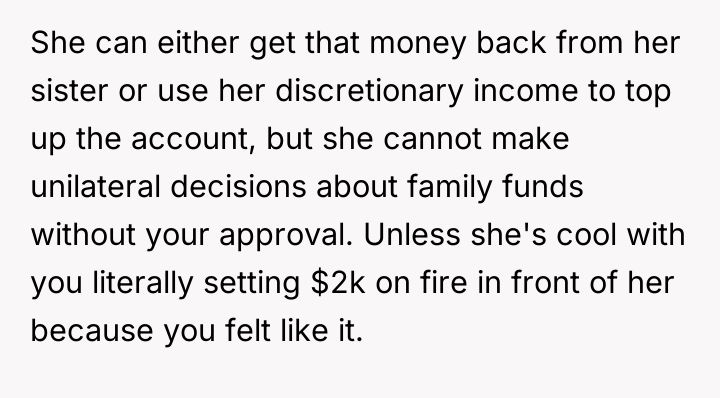




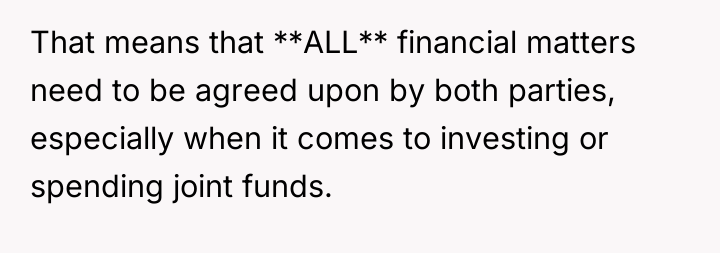
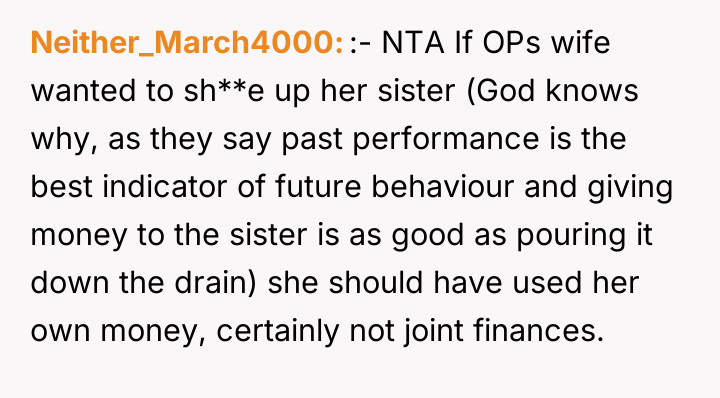
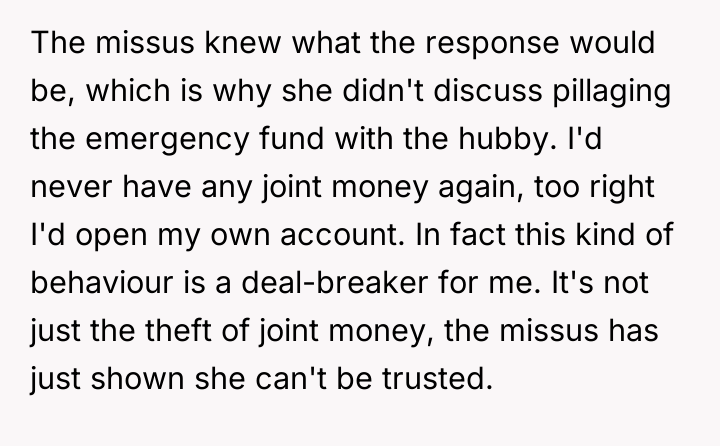



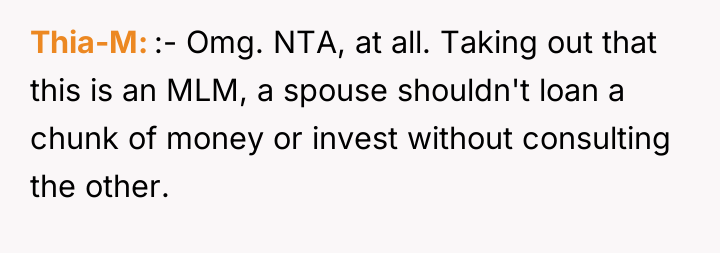
The original poster (OP) is facing a conflict rooted in financial trust and differing views on supporting family members. The OP feels betrayed because a significant amount of shared marital savings was used without consultation to fund a new business venture for his sister-in-law, especially given the sister-in-law's history of poor financial decisions. His wife, conversely, feels unsupported and believes she has the right to assist her sister's potential success, even proposing quitting her job to join the scheme.
The central question for consideration is where the boundary of financial autonomy lies within a marriage, specifically regarding shared emergency/household funds. Is the OP justified in imposing strict conditions (demanding the money back) to protect the shared financial security, or is the wife entitled to use a portion of the shared assets to support her family's aspirations, even if those aspirations appear risky?